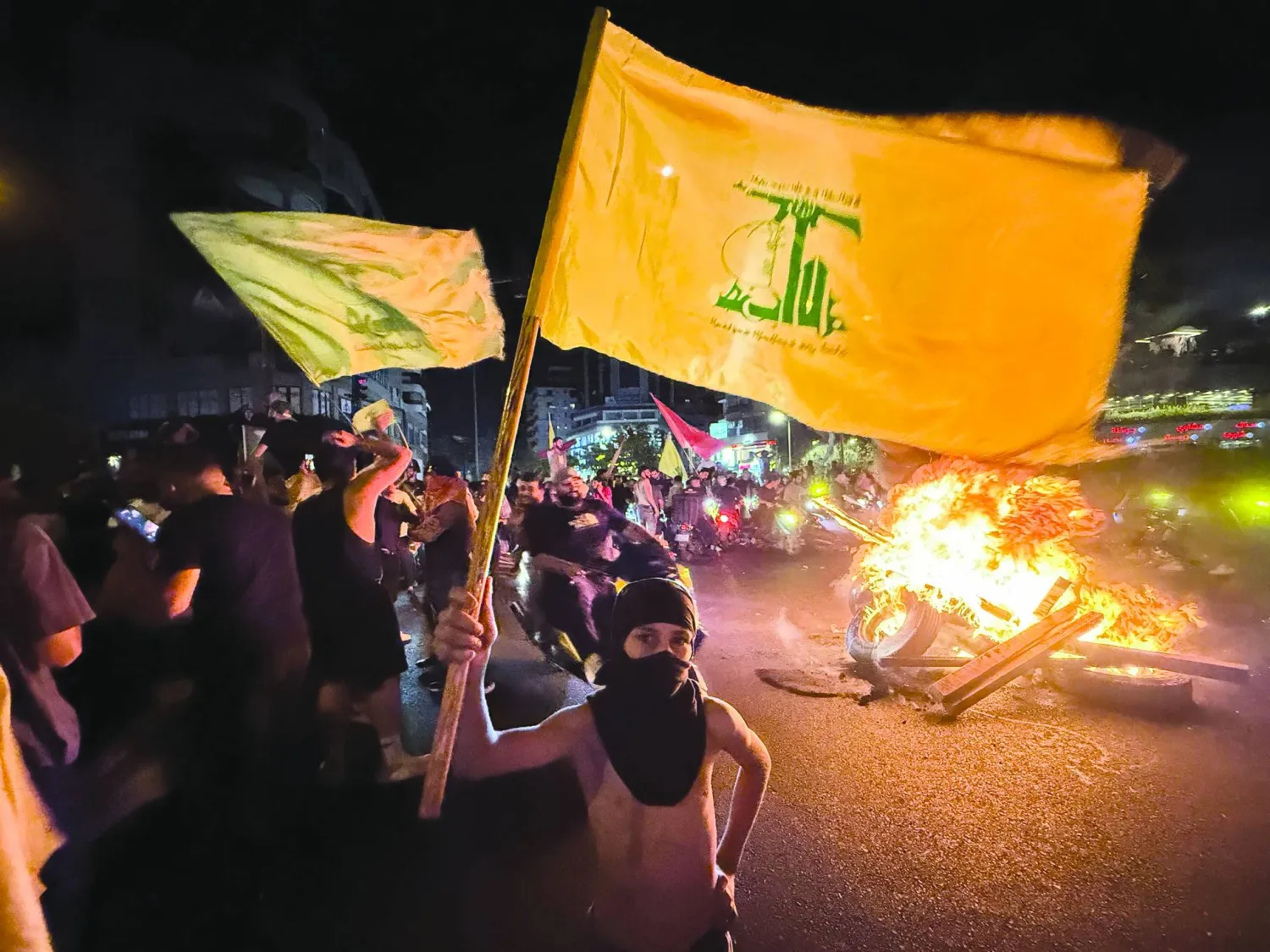Lebanon’s “duo”, Hezbollah and Amal parties, approach with “realism” the government’s decision to bring weapons under the state’s control and end all armed presence across Lebanese territory.
Despite the escalatory rhetoric that pro-Hezbollah individuals and officials are displaying, the early indicators seen during Tuesday’s Cabinet meeting and the second session on Thursday, suggest that Hezbollah, which had already agreed to the terms of the ceasefire, is aware of the new limits set by the shifting balance of power in recent weeks.
Although Hezbollah and Amal ministers have walked out of the Cabinet meeting during discussions of the US proposal to disarm the party, the ministers assured that they would not resign from the Cabinet.
Meanwhile, the “duo’s” protests on Thursday in opposition to the government decision were limited and confined to Beirut’s southern suburbs - Hezbollah’s stronghold. The Lebanese Army was on high alert, preventing demonstrators from moving into surrounding areas. The leadership of Amal has notably issued a firm and decisive statement calling on its supporters not to take part in the protests.
On Thursday, the government approved part of the proposal presented by US envoy Thomas Barrack, agreeing to end all armed presence across Lebanese territory - including that of Hezbollah - and to deploy the Lebanese Army in the border areas.
No Resignation from Government. No Organizational Decision Regarding Popular Demonstrations
Ministers affiliated with Hezbollah and Amal were keen not to escalate rhetoric after Thursday’s Cabinet meeting.
Amal parliamentary sources told Asharq Al-Awsat that there is no organizational decision by the Hezbollah-Amal alliance to escalate measures, whether politically or through popular mobilization. “The calls circulating on social media for protests and gatherings are spontaneous and not endorsed by any official party” they said.
The sources also affirmed that “there is no decision to resign from the government or move toward a point of no return. On the contrary, there is a strong desire to find solutions that spare the country an avoidable political crisis”.
On the other hand, ministerial sources told Asharq Al-Awsat that Hezbollah and Amal plan no political or popular escalation and that the ministers’ withdrawal from the Cabinet meeting was only to protest the timing. “They want the Israeli withdrawal from five contentious points in Lebanon to take place before the disarmament of Hezbollah”, they noted.
“The decision has been made, and undoubtedly its implementation will not be easy mainly for a party that has possessed arms and power decision-making for the last 40 years. But a solution must be reached. It is in no one’s interest to confront the logic of the state with violence. They need to recognize that the situation has changed, and time will make that clear”, stated the sources.
Amal-affiliated Environment Minister Tamara Al-Zein said in a televised address: “No one can outbid us on this. Our objection was never to tasking the Lebanese Army. Rather, the agreement touches on Lebanon’s sovereignty and requires broader consultations and national consensus.”
Hezbollah Has No Options But to Act with ‘Realism’
Amid the local and regional developments, Dr. Sami Nader, Director of the Levant Institute for Strategic Affairs, believes that Hezbollah has come to realize that the balance of power in the region has shifted, and what was once possible is no longer feasible today.
In remarks to Asharq Al-Awsat, Nader said the regional landscape has shifted, and Hezbollah no longer possesses a surplus of power following the systematic destruction it has endured and the assassination of its leaders following Israel’s war in 2024.
He said Hezbollah has come to realize that its options are limited, a realization that came evident during the formation of the government, when the Hezbollah-Amal alliance lost its blocking third.
He said that Parliament Speaker Nabih Berri has also realized the extent of these changes and understands the need to deal with them realistically, despite the narrowing room for political maneuvering.
Nader also pointed to the internal Lebanese situation saying that the political game has changed its course in the Mediterranean country with the election of President Joseph Aoun and Prime Minister Nawaf Salam. Both have taken firm and decisive decisions, “something that came as a surprise to some and represents a new dynamic in Lebanon’s political equation”.







